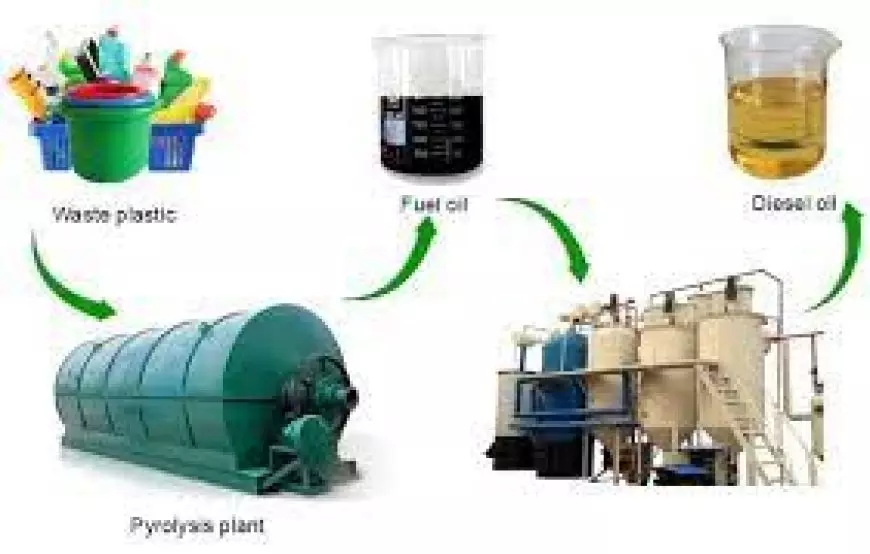Tackling Waste: Plastic Waste Management in India and E-Waste Annual Return Form
In this article, we will delve into the pressing issue of plastic waste management in India, and also shed light on the E-Waste Annual Return Form, a crucial step in the country's efforts to tackle electronic waste effectively.

As our world continues to grapple with the environmental consequences of unchecked waste production, countries are realizing the urgent need to adopt sustainable waste management practices. India, with its growing population and rapid industrialization, faces significant challenges in managing two types of waste that have garnered global attention: plastic waste and electronic waste (e-waste). In this article, we will delve into the pressing issue of plastic waste management in India, and also shed light on the E-Waste Annual Return Form, a crucial step in the country's efforts to tackle electronic waste effectively.
Introduction
With the rise of consumerism, the world has witnessed an alarming increase in plastic waste pollution. India, as one of the largest consumers of plastics, faces the daunting task of tackling plastic waste, which not only affects its ecosystems but also poses health hazards for its citizens. Additionally, the proliferation of electronic devices has led to a surge in e-waste, further adding to the environmental burden.
The Magnitude of Plastic Waste in India
India generates a staggering amount of plastic waste each year, contributing significantly to the global plastic crisis. The improper disposal of plastic waste clogs water bodies disrupts soil fertility, and poses a threat to marine life. Finding effective ways to manage this waste is imperative to ensure a sustainable future.
Challenges of Plastic Waste Management
Several challenges hinder the efficient management of plastic waste in India. These include inadequate collection infrastructure, lack of public awareness, and the complexity of recycling different types of plastics. Additionally, the informal recycling sector often operates without proper safety measures, putting workers' health at risk.
Government Initiatives for Plastic Waste Management
Recognizing the urgency of the situation, the Indian government has launched initiatives like the Swachh Bharat Abhiyan and the Plastic Waste Management Rules to address plastic waste. These initiatives emphasize waste segregation, extended producer responsibility, and the establishment of plastic recycling units.
Role of Technology in Plastic Waste Management
Technology plays a pivotal role in managing plastic waste. Innovations like waste-to-energy plants, biodegradable plastics, and blockchain-based traceability systems have the potential to revolutionize waste management by increasing recycling rates and reducing environmental harm.
E-Waste: A Growing Concern
The rapid pace of technological advancement has led to the accumulation of electronic devices that become obsolete within a short period. E-waste, which contains hazardous materials, requires specialized handling to prevent environmental contamination.
E-Waste Management Practices
Proper e-waste management involves the safe collection, transportation, and recycling of electronic devices. Informal recycling practices, often carried out in unsafe conditions, pose health risks and lead to resource wastage. Implementing formal e-waste recycling channels is crucial.
Introducing the E-Waste Annual Return Form
The E-Waste Annual Return Form is a regulatory requirement introduced by the Indian government to monitor and manage e-waste effectively. Manufacturers, producers, and recyclers of electronic equipment must submit this form to report their e-waste handling activities.
Understanding E-Waste Annual Return Form
The E-Waste Annual Return Form captures essential data regarding the production, collection, and recycling of electronic equipment. This information enables authorities to track e-waste flows, ensure proper disposal, and enforce compliance with environmental regulations.
Benefits of E-Waste Annual Return Form
The E-Waste Annual Return Form incentivizes responsible e-waste management. By holding stakeholders accountable for their e-waste handling practices, the form promotes transparency, reduces illegal dumping, and supports the proper recycling of valuable resources.
How to Fill Out the E-Waste Annual Return Form
Filling out the E-Waste Annual Return Form involves providing accurate data about the types and quantities of electronic equipment handled. This data aids in assessing the environmental impact of e-waste and planning effective waste management strategies.
Role of Extended Producer Responsibility (EPR)
The concept of Extended Producer Responsibility holds manufacturers and producers accountable for the entire lifecycle of their products, including their disposal. EPR encourages the design of eco-friendly products and promotes sustainable waste management practices.
Public Awareness and Participation
Addressing both plastic waste and e-waste challenges requires public participation. Government campaigns, educational initiatives, and community engagement can enhance awareness about waste management practices and encourage responsible consumption.
Global Best Practices in Waste Management
Several countries have implemented successful waste management practices that India can learn from. These include innovative recycling techniques, waste reduction policies, and collaborations between government, industry, and civil society.
Conclusion
As India navigates the complexities of waste management, tackling plastic waste and electronic waste emerges as a critical mission. With effective government policies, technological advancements, and proactive public involvement, India can pave the way for a cleaner and more sustainable future.
What's Your Reaction?

































































































